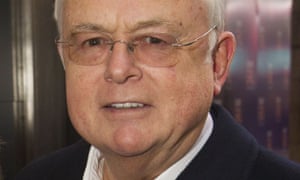UN to urge media to take more ‘constructive’ approach to news

The UN initiative is backed by NCVO chair Sir Martyn Lewis. Photograph: Dan Wooller/REX/Shutterstock
The United Nations is to call for the world’s media to take a more “constructive” and “solutions-focused” approach to news to combat “apathy and indifference”.
UN director general Michael Møller is to meet broadcast, print and online journalists in London on Wednesday to discuss how new ways of covering the world with the help of the UN and the Constructive Voices programme run by the National Council for Voluntary Organisations.
Constructive Voices incorporates an online resource designed to help journalists find case studies that provide practical solutions to problems. The UN has separately launched GAVDATA, an online portal providing access to a huge store of information from the the UN and other international organisations and NGOs.
Speaking ahead of the event, director general Michael Møller said many people feel “disempowered” by the news and unable to influence decisions.
He said: “The choices we make are determined by the information we are given. These are fundamental to how we shape a better world together.”
“In a world of 7 billion people, with a cacophony of voices that are often ill-informed and based on narrow agendas, we need responsible media that educate, engage and empower people and serve as a counterpoint to power. We need them to offer constructive alternatives in the current stream of news and we need to see solutions that inspire us to action. Constructive journalism offers a way to do that.”
“It’s vital too that we have data and different points of view.”
The UN and the NCVO also claims that the public are turned off by overwhelmingly negative news, and are more likely to share stories that offer solutions to problems, providing a commercial incentive for media organisations to include more positive stories.
NCVO chair Sir Martyn Lewis, a former BBC News presenter in the 80s and 90s who covered the death of Princess Diana, said the organisations were not asking the media to abandon its traditional approach, but to supplement it with journalism that helps solve problems.
“It’s 23 years almost to the day that I first spoke out about the need for more balanced news agenda. I have been misunderstood in the past, with people believing I just wanted fluffy, feelgood news at the expense of covering real news,” said Lewis. “This is not the case at all. I’d like to see the media engage in solutions-driven journalism which not only reports problems but explores potential solutions to those problems as well.”
“I would stress that this approach absolutely does not mean giving up the traditional approach to journalism, but is complementary to it and, interestingly, there is growing evidence that it makes a lot of commercial sense as well.”